I’ve only recently started making strides in an area that I’ve had little practice in: asking for mental support.
Logically, this feat shouldn’t be difficult; we ask for help all the time in our daily lives. I can easily seek clarification on an assignment or reach out to a classmate for lecture notes. However, my interpersonal barrier comes not from the reluctance to request assistance but from the hesitance to reveal vulnerability. Although this mindset is not specific to one identity, the societal and familial pressures surrounding the Asian American community elevate personal aversion into a wider phenomenon. Thus, addressing Asian American mental health requires examining the issue as it relates to society’s monolithic view of the Asian American and Pacific Islander (AAPI) community. In order to create an environment where we feel comfortable discussing our unique hardships, we must celebrate our individuality as a community.
Current shortcomings in mental health awareness are exhibited by the low numbers of Asian Americans who seek professional help. Only 8.6% of AAPIs pursue mental healthcare services, a rate three times less than that of their white counterparts, yet the demographic has a 17.3% rate of developing a psychiatric disorder in their lifetime. This vast discrepancy indicates that more than a million Asian Americans live with untreated psychiatric disorders.
With low visibility of mental disorders in their communities, many AAPI youths feel that they must struggle alone. In one 2009 survey, Asian Americans aged 18 to 30 reported that a significant factor in their hesitancy to request professional help is the negative perception of counseling in their communities.
The stigma around mental health is deeply ingrained in the sociopolitical environment surrounding Asian American discourse, specifically in how American society has defined us as universally obedient, book-smart and hard workers. While we are told these labels are complimentary, they hold underlying implications: Asian Americans are compliant, robotic followers. This concept is known as the model minority myth. It explains why Asian Americans are overlooked for leadership opportunities despite being overrepresented in fields such as technology and medicine.
The generalization effect of the model minority myth also plays a significant role in Asian Americans’ aversion towards professional counseling. No two mental health diagnoses result in the same repercussion, especially the impacts on one’s relationships and lifestyle. As such, mental illness is innately incompatible with the monolithic perception of the AAPI community. Seeking treatment requires that we demand recognition for our struggles and confront the individuality of our experience.
By openly resisting societal prejudice, we, as Asian Americans, can foster a welcoming environment for mental health discourse. First and foremost, AAPI achievements must be credited to our exceptionalism instead of our commonality. We often see white success portrayed as an individual transcending their peers while Asian success is portrayed as a product of one’s adherence to cultural norms. In reality, our accomplishments are not an expectation of our identity but a product of our unique qualities. Along those same lines, my struggles do not reflect a failure to my Asian American identity but an experience that is a valid part of human existence.
We must also reject the belief that celebrating individuality means sacrificing our place in the community. In our personal, academic and professional relationships, I urge Asian Americans to initiate discussions about our personal hardships and successes. We should all play a role in validating experiences from the vast array of regions, customs and values that make up the AAPI community.
In a competitive environment like Georgetown University, the stigma surrounding mental health services is substantially amplified. In response, we must actively validate each other’s experiences and encourage dialogue around defiance of the model minority myth. These conversations should include other barriers in mental health access including the language divide, insufficient resources and high medical fees. Eventually, I hope we will all come to the same conclusion: we are defined by our individuality and not by demographic data points.
Angela Yu is a first year in the School of Foreign Service.


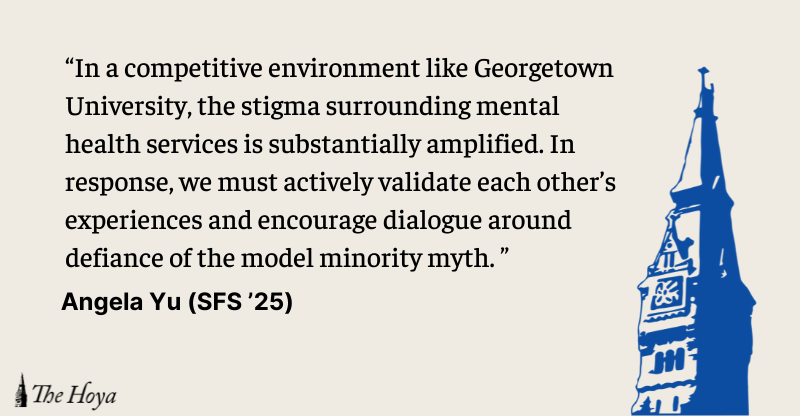

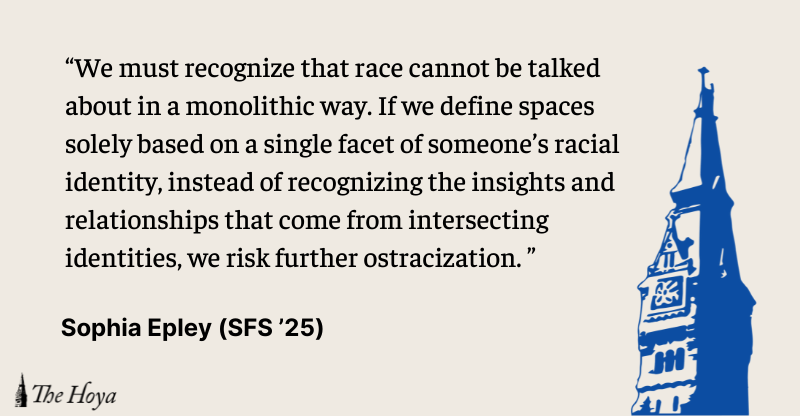
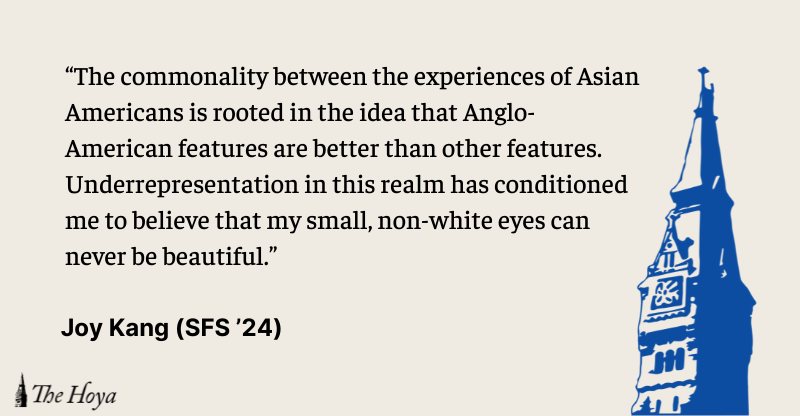
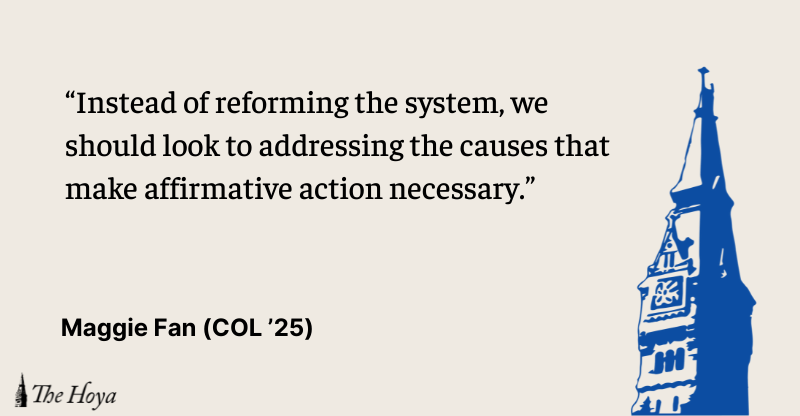
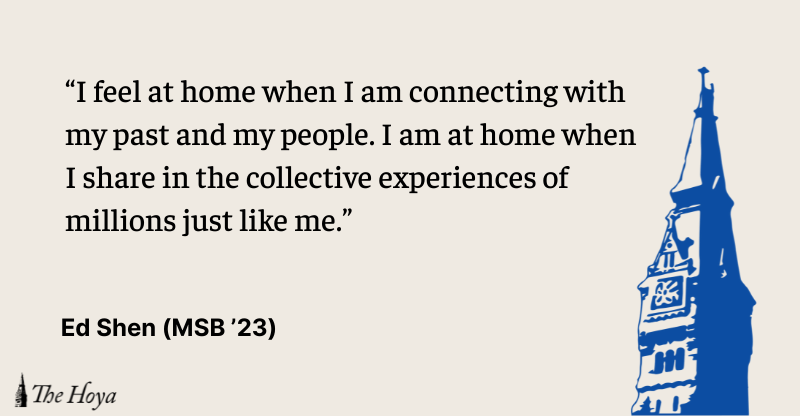








Harold A Maio • Dec 3, 2021 at 6:12 am
VIEWPOINT: Destigmatize Mental Health Struggles??
It is possible you mean stop teaching there is a stigma to mental health struggles and start referencing them as a health issue. Teaching they carry a stigma has done enough harm.
Harold A Maio
Angela Yu • Dec 3, 2021 at 1:27 pm
Harold, I mean what I said. Yes, mental health is a health issue but there is also a stigma around talking about it. In order to remove that stigma, we must first address its existence and the factors that perpetuate it. Are you suggesting that we simply ignore the shame surrounding mental health in many communities by not teaching it? Awareness of the shortcomings in our society is the first step to change and that applies to mental health stigma as well.